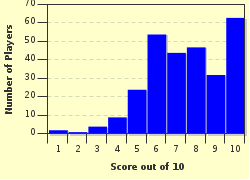Quiz Answer Key and Fun Facts
1. Epiretinal membrane (ERM) is a disease that affects which organ of the body?
2. There are two parts to the retina of the eye, the peripheral retina and the macula. What form of vision does the macula provide you with?
3. Bearing in mind that there is a clue in the name of this disease, which of the following statements best describes epiretinal membrane (ERM)?
4. Epiretinal membrane (ERM) can lead to which of the following eye disorders?
5. Epiretinal membrane (ERM) only affects your central vision and not your peripheral vision.
6. Of the following four causes of epiretinal membrane (ERM), three of them are responsible for a small percentage of its occurrence. Which of the following is the main cause of ERM?
7. There are no effective methods available to prevent the onset of posterior vitreous detachment (PVD).
8. What is the best way to 'remove' an epiretinal membrane (ERM)?
9. Which of the following represents a risk from surgery to remove an epiretinal membrane (ERM)?
10. Which of the following activities should be avoided immediately after surgery to remove an epiretinal membrane (ERM)?
Source: Author
pollucci19
This quiz was reviewed by FunTrivia editor
crisw before going online.
Any errors found in FunTrivia content are routinely corrected through our feedback system.


